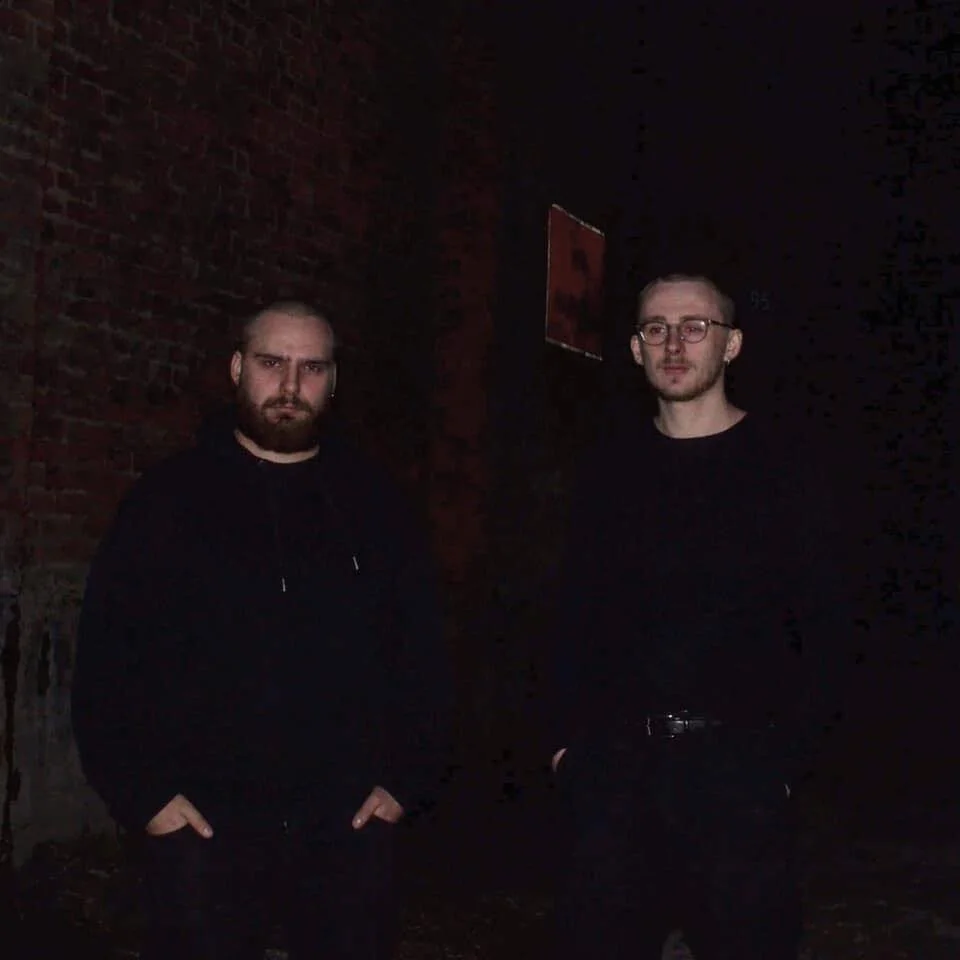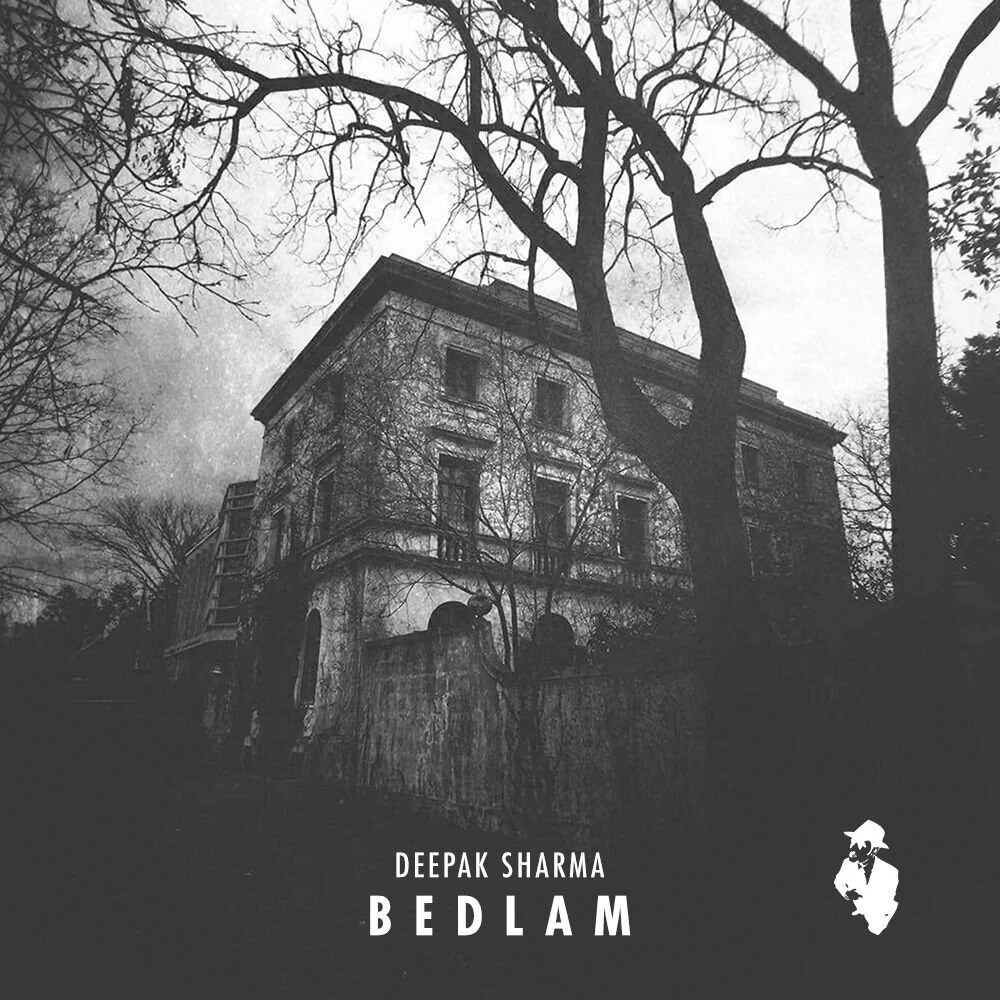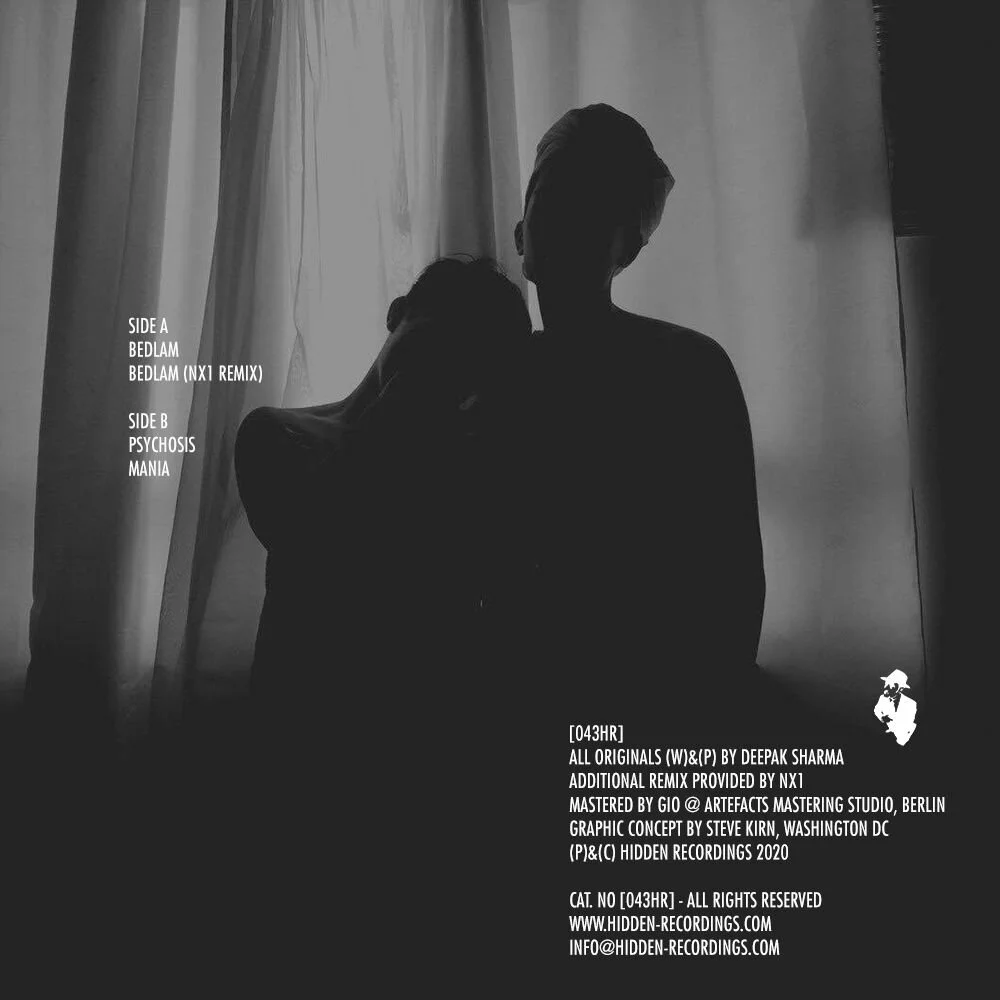The Brvtalist: Ai fen is a new project. Tell us about your musical background and how you came to begin this endeavor.
Ai fen: I have played flute from the age of ten and later took up piano. I went to a Catholic conservatory until I graduated from high school and then didn’t play any music for over a decade. In 2014 I was at an art event where Daniel (Vlcek) handed me a microphone and told me to sing. I never had before but he liked my voice and we decided to do a project together. That’s how ba:zel, my witch-wave duo (www.bazelmusic.com), was born. That was the first time I composed music at all. About two years into that I started to crave having something over which I would have complete creative control and where I could experiment more, so I started to learn how to produce and that’s how Ai fen came to be.
TB: You mentioned before you call your music "trauma pop". Tell us a little bit more about that term.
Af: I started to refer to my project as “trauma pop” or “screamo pop” to reference the rather unpop elements of a project that, because of its tendency toward melody and more conventional song structure (verses, refrains), was inevitably for some kind of mutation of pop. Working with dramatic vocal fluctuations is a way for me to gesture towards the instabilities in my personality that stem from different types of trauma, whether personal or societal. In Ai fen I challenge myself to be fully raw to unravel what unnerves me. The album starts with "OH" referring to the millennium, the double zeroes that led to the Y2K scare. I was just a kid when it happened and it was exciting, frightening and also mysterious to think that a computer glitch could lead to such devastation, especially since computers didn't feature almost at all in my life at the time. So that New Year's Eve was really something I remember clearly, not long after ICQ, messenger and things like that began to appear and cyber territory became an extension of my teen social life, albeit more cryptically than it is now. The album then moves into fears of having children during the climate change crisis and the imminent, yet vague terror of climate change in general (1nfanticide, This Analog Desire (Makes Me Slow). Other tracks question heteronormative traditional relationships and primal desires (As I Thought, Crimson), tap into childhood trauma localized in particular triggers (All the Things) and explore landscapes of non-belonging and enforced identities (Raw Air, MYŚLIWY, Blood Millenials). The track I_Like_Breathing however is a hopeful mantra, it reminds us to "inhale exhale out, everything else is just a store we tell ourselves." It ends with a flute loop drone, a choral arrangement and explosive screaming to gesture towards our inevitable end in these tangible bodies. But this shouldn't be taken as dark or negative, for me the scream is a liberation, a ripping through into a new self.
TB: You are a Polish/Chinese artist currently living in Prague. Would you say your multicultural heritage informs your art?
Af: Without question! Ai fen is my Chinese middle name. Growing up biracial had an enormous impact on how my sense of identity developed, especially because we moved around so much and due to the fact that being Chinese and being Polish seemed to be mutually exclusive identities that could not be reconciled. As radically different cultures wherein the persons are marked by not only varying rituals and behaviors but also outward appearance I, as both Chinese and Polish, had to constantly defend and explain myself when faced with the very basic question of “Where are you from?” In a way, I often felt that I was in a nowhere land, being neither Chinese nor Polish and certainly not Canadian or American. So I was nothing, but this turned out to be very enriching for me because it created a space in which I could really evaluate all the influences of my background and come out as the sum of it all but also the sum of nothing. This is also similar to the millenial experience where we’ve stood on the transition of analog and digital and come out with a loving nostalgia of the past and a certain uneasiness and distrust to the cyber present while at the same time being addicted to it. This is compounded by the climate change crisis which asks us to unlearn all the myths we were taught about following patterns of work ethic to guarantee a safe future.
















